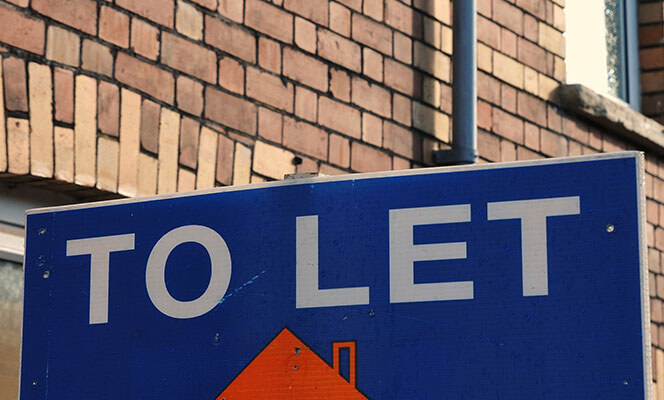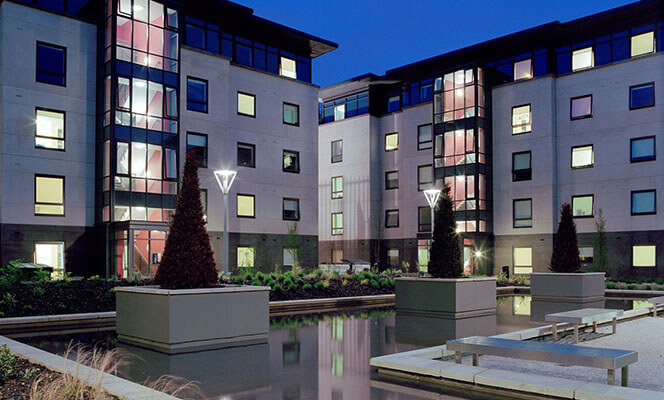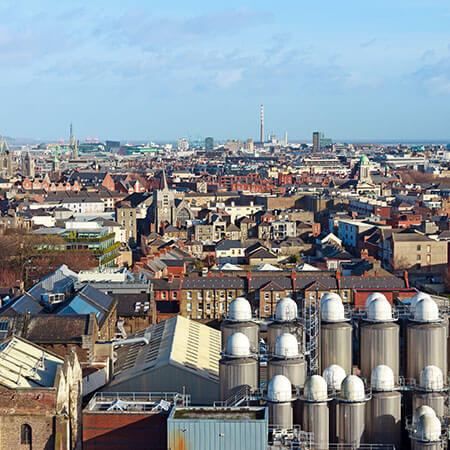Accommodation is available in Dublin, but it’s limited – and this is reflected in its cost. Excellent employment opportunities, a booming multinational sector and a high density of third-level institutions have driven demand in recent years.
The Government are trying to address the issue and new developments are underway, but the shortage is expected to remain a problem for some time to come.
There are so many great reasons to live in Dublin, but sometimes finding a place to live can be daunting. Here’s what you need to know about house hunting in the capital.
Renting in Dublin
Although average rent increases in Ireland fell significantly in 2023, for the first time in two years, Dublin is still the most expensive county in Ireland to rent in. However, the Government has introduced a rent cap across the Dublin area. This prevents landlords from increasing rents by more than 4% each year.
Dublin’s well-connected transport network also means you can opt to live in a nearby county instead. Meath, Kildare and Wicklow all offer easy access to the capital and rents tend to be lower there.
Daft.ie’s 2023 rental survey found that the average rent in Dublin city centre is €2,349. The average rent nationally is much lower at €1,823.

It’s also worth noting that the cost of accommodation within Dublin varies considerably too. If you head to the south, average rents rise. Any accommodation along the coast will probably cost a premium too. But to the north and west, rents are lower. In North County Dublin, for example, the average rent is €2,307.
Traditionally, it costs more to live near one of Dublin’s tram or railway stations too.
Daft.ie, MyHome.ie and Rent.ie provide a comprehensive overview of all the properties available throughout the city. They are a good starting point in the search for rental accommodation in Dublin.
Buying a home
The competition for housing in Dublin is strong. As a result, the number of new properties available in recent years has risen.
In 2023, the number of new homes in Dublin rose by almost 22% compared to the previous year. Nationally, there were 32,695 new dwelling completions in the whole of 2023, an increase of 10.0% from 2022. Many of these were apartments and most of them are located in Dublin’s suburbs and commuter belt.
Although housing prices in Dublin are still high, their rate of increase has slowed down.
Figures suggest the average price of a home in Dublin is approx €405,000. But, as with rental accommodation, this figure is a lot lower in nearby commuter counties, like Meath and Kildare. Prices vary hugely between different Dublin districts as well.
If you want to buy a home, Daft.ie and the property sections of national newspapers like The Irish Times and the Irish Examiner are the best places to look.
Student accommodation

With rental property proving difficult to come by, on-campus student accommodation has become a desirable option for many third-level students. Dublin City University, University College Dublin and Trinity College Dublin all offer on-campus options. OnCampus.ie also lists the short-term spaces available at each college.
Bear in mind that long-term bookings for the academic year get snapped up quickly, so make sure you inquire well before the academic term begins.
For off-campus accommodation, Daft.ie has a useful search option for students. Purpose-built student accommodation in Dublin is increasing. Right now, international students make up 79% of the tenants in these buildings, so this is another option to consider.
One positive thing about the search for student accommodation is that a support network is available. Student Unions, as well as other students, often share tips and news on available properties.
The national Union of Students in Ireland also offers a guide, which includes helpful information on rental agreements and a useful checklist. It also offers advice to students who run into problems while renting.
For more information, you can check out our full guide to finding student accommodation in Dublin.




